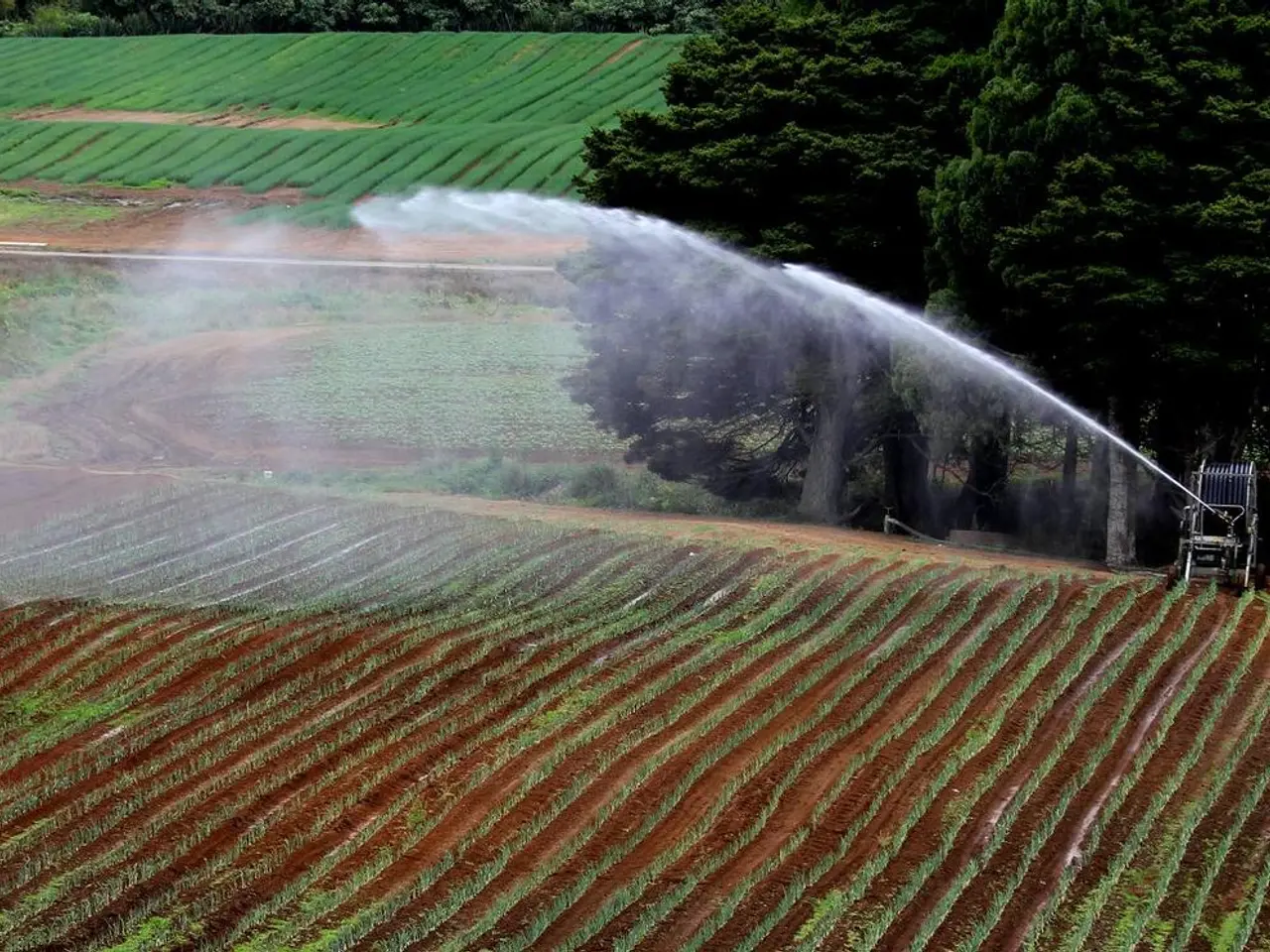Fertiglobe's second-quarter revenue jumps 14%, reaching a total of $566 million
Fertiglobe Drives Growth and Sustainability with Strong Financial Performance
Fertiglobe, a global leader in urea and ammonia exports, is on a strategic path to become a $1 billion+ EBITDA global nitrogen champion by 2030. The company's Grow 2030 Strategy is anchored on four pillars: operational excellence, customer proximity, nitrogen production expansion, and disciplined low-carbon growth.
In the first half of 2025, Fertiglobe reported a robust financial performance. Revenue stood at $1.26 billion, a 20% increase year-on-year, and adjusted EBITDA grew by 26%, demonstrating resilience and operational strength amid challenging market conditions. Own-produced sales volumes in H1 2025 rose 7% year-on-year, excluding external factors, and maintenance capital expenditure was managed toward the lower end of guidance at $145 million despite downtime for critical maintenance activities in Egypt.
Fertiglobe's financial discipline is reflected in its shareholder returns program. The company proposed at least $100 million in dividends for H1 2025, plus $31 million in share buybacks during Q2 2025, totaling $131 million in cash returns to shareholders — one of the highest in the industry.
Key projects include the ongoing Project Harvest, a 1 million tonnes per annum (mtpa) lower carbon ammonia facility, and the evaluation of Project Baytown in collaboration with ADNOC and ExxonMobil, focusing on low-carbon ammonia solutions as part of the company's decarbonization roadmap.
The company's recent financial success is supported by the recovery in urea prices, which are 20% higher than Q2 2025 levels, and robust import demand from key markets such as India and Ethiopia. Fertiglobe is leveraging this momentum to drive growth and long-term value creation while promoting sustainability and innovation in nitrogen fertilizer production.
In addition, Fertiglobe announced the rephasing of Project Rabdan1F, a 1 mtpa low-carbon ammonia project and associated auto-thermal reformer, due to the evolving regulatory frameworks and demand signals in the global low-carbon ammonia market. This decision aligns with the broader objectives of the Grow 2030 Strategy, particularly its focus on disciplined low-carbon growth.
The acquisition of the distribution assets of Wengfu Australia is another strategic move aimed at strengthening Fertiglobe's downstream presence in high-netback markets and enhancing supply chain resilience. This transaction is subject to regulatory approvals and is expected to close in H2 2025.
In Q2 2025, Fertiglobe reported a revenue of $566 million, marking a 14% year-on-year increase. Adjusted Ebitda grew to $176 million, a 26% increase from the previous year, and adjusted net profit attributable to shareholders stood at $12 million, reflecting a 68% increase compared to Q2 2024.
Fertiglobe's strong financial health, growth strategy focused on nitrogen production expansion and decarbonization, and shareholder value creation have been emphasized in recent sources. The company's total return metrics for H1 2025 are among the highest in the industry, with $131 million in cash returns to shareholders, underpinned by credit rating upgrades, Adnoc's acquisition of a majority stake in Fertiglobe, and the refinancing of a $300 million loan through the internal Adnoc bank.
Somshankar Bandyopadhyay, News Editor managing the business section, ensures top economic and business news reaches readers. With Fertiglobe's ongoing success, it is clear that the company is well on its way to achieving its ambitious Grow 2030 Strategy.
- Fertiglobe's Grow 2030 Strategy, with a focus on nitrogen production expansion and low-carbon growth, is expected to drive the company towards becoming a $1 billion+ EBITDA global nitrogen champion by 2030.
- Given the strong financial performance of Fertiglobe in the first half of 2025, the company proposed $100 million in dividends and undertook $31 million in share buybacks, totalling $131 million in cash returns to shareholders.
- Fertiglobe's financial success is partly due to the recovery in urea prices and robust import demand from key markets like India and Ethiopia, which the company is utilizing to advance its growth and value creation goals while promoting sustainability.
- In an effort to enhance downstream presence and supply chain resilience, Fertiglobe announced the acquisition of Wengfu Australia's distribution assets, subject to regulatory approvals and anticipated to close in H2 2025.




